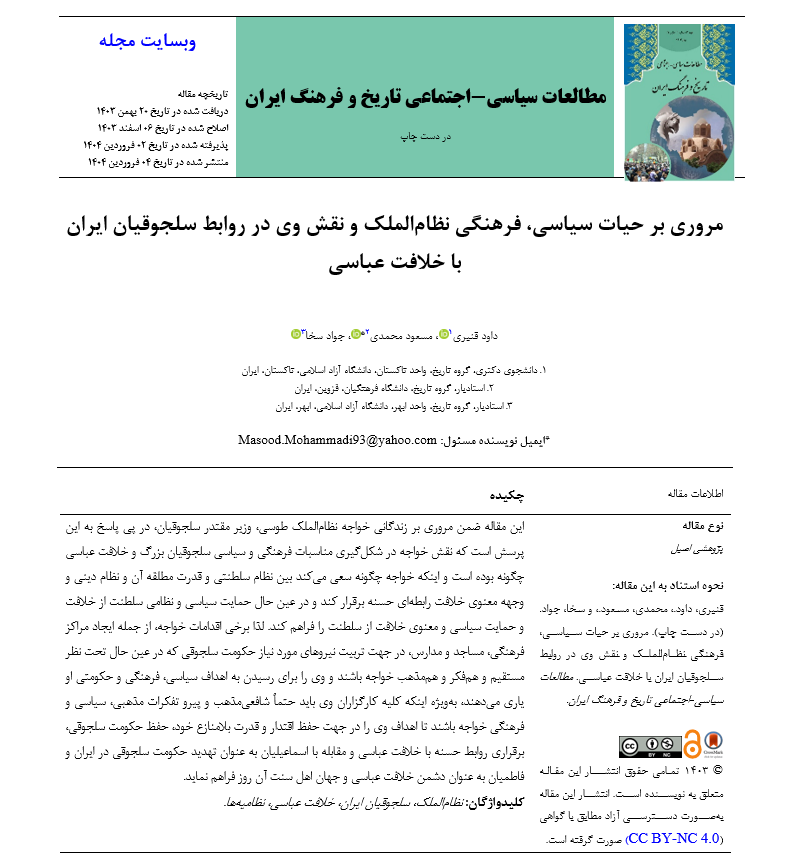A Review of the Political and Cultural Life of Nizam al-Mulk and His Role in the Relations Between the Iranian Seljuks and the Abbasid Caliphate
Keywords:
Nizam al-Mulk, Seljuks of Iran, Abbasid Caliphate, MilitaryAbstract
This article reviews the life of Khwaja Nizam al-Mulk al-Tusi, the powerful vizier of the Seljuks, and seeks to answer the question of his role in shaping the cultural and political relations between the Great Seljuks and the Abbasid Caliphate. It examines how Khwaja attempted to establish a harmonious relationship between the monarchical system and its absolute authority, and the religious system and the spiritual prestige of the caliphate, while simultaneously facilitating the political and military support of the monarchy for the caliphate and the political and spiritual endorsement of the caliphate for the monarchy. Therefore, some of Khwaja's actions—such as the establishment of cultural centers, mosques, and madrasas—are analyzed in the context of training the personnel required by the Seljuk administration, all of whom were to be directly supervised by individuals aligned with Khwaja’s thought and sectarian orientation. These institutions served to assist him in achieving his political, cultural, and administrative objectives, especially considering that all his officials were required to adhere strictly to the Shafi'i school of jurisprudence and follow Khwaja’s religious, political, and cultural ideologies. This ensured the realization of his goals: maintaining his unrivaled authority, preserving the Seljuk state, establishing good relations with the Abbasid Caliphate, and countering the Isma'ilis—who posed a threat to Seljuk rule in Iran—and the Fatimids, who were enemies of the Abbasid Caliphate and the Sunni world at the time.
Downloads








